The event planning industry is experiencing significant growth, with the U.S. market expected to surpass $5 billion by 2024 due to increasing demand for corporate, social and hybrid events.
This growth highlights the need for skilled Event Managers who can lead logistics, manage budgets and ensure flawless event execution.
Whether you’re an employer hiring for an Event Manager or an applicant preparing for an interview, this guide offers actionable strategies, Event Manager interview questions and insights to advance your hospitality career.
How To Prepare for an Event Manager Interview as an Employer
To find and hire the best Event Manager for your team, consider these steps:
- Define the role: Clearly outline Event Manager responsibilities such as event coordination, vendor negotiations, budgeting and post-event analysis.
- Develop specific questions: Craft interview questions that evaluate creativity, leadership and problem-solving skills.
- Showcase your company culture: Highlight values, team dynamics and growth opportunities to attract top candidates.
- Set a welcoming tone: Conduct interviews in a professional yet comfortable environment to encourage open dialogue.
How To Prepare for an Event Manager Interview as an Applicant
To stand out in your Event Manager interview, follow these preparation steps:
- Research the company: Understand the organization’s event history, target audience and mission to align your responses.
- Highlight relevant skills: Showcase experience with vendor coordination, budget management or creative event design.
- Prepare answers to common questions: Rehearse responses that emphasize leadership and problem-solving abilities.
- Dress professionally: Choose attire that reflects the organization’s culture while maintaining a polished appearance.
Questions To Avoid Asking an Event Manager as an Employer
To maintain professionalism and inclusivity, avoid questions that could lead to discrimination or bias.
For example, avoid asking the candidate about their age or marital status, as these are irrelevant to their professional capabilities.
Instead, focus on skills and experiences directly related to the role. Similarly, do not ask about religious practices or health conditions; instead, phrase questions about availability or flexibility in neutral terms.
Lastly, avoid questions about citizenship or national origin and stick to verifying work authorization.
Adopting these practices ensures a fair and respectful interview process.
General Event Manager Interview Questions
These questions explore an applicant’s general skills, experiences and attributes while providing a foundation for deeper discussion.
What attracted you to a career in event management?
- For employers: Understand the candidate’s motivation and passion for the field.
- For applicants: Share your enthusiasm for planning and executing events successfully.
Example answer: “I love the challenge of bringing creative ideas to life and the satisfaction of seeing an event come together seamlessly.”
How do you manage your time when working on multiple projects simultaneously?
- For employers: Assess the candidate’s ability to prioritize and meet deadlines.
- For applicants: Highlight strategies for staying organized and productive.
Example answer: “I use detailed timelines and task management software to track progress. Breaking projects into smaller tasks helps me stay on top of deadlines.”
How do you approach collaboration with diverse teams?
- For employers: Gauge teamwork and interpersonal skills.
- For applicants: Provide examples of successful collaborations.
Example answer: “I encourage open communication and respect everyone’s input. In my last role, this approach helped our team resolve conflicts and execute a major event successfully.”
What do you consider your greatest strength in event management?
- For employers: Learn about the candidate’s core competencies.
- For applicants: Emphasize a skill that directly benefits the role.
Example answer: “My greatest strength is adaptability. I can quickly adjust plans when unexpected challenges arise, ensuring events stay on track.”
How do you stay motivated during stressful situations?
- For employers: Understand the candidate’s resilience and coping mechanisms.
- For applicants: Share strategies for staying focused and effective under pressure.
Example answer: “I focus on solutions and take things one step at a time. During a last-minute venue cancellation, I stayed calm, secured a backup location and communicated effectively with all stakeholders.”
Role-Specific Event Manager Interview Questions
These questions assess the unique skills and expertise required for the role of an Event Manager.
What’s your process for creating and managing event budgets?
- For employers: Understand the candidate’s ability to control costs while delivering a successful event.
- For applicants: Share your approach to financial planning and resource allocation.
Example answer: “I start by gathering detailed estimates for all expenses and identify areas where costs can be optimized. I regularly update the budget to ensure we stay on track.”
How do you select and manage vendors for events?
- For employers: Gauge the candidate’s ability to establish reliable vendor relationships and maintain quality.
- For applicants: Explain your process for vetting, negotiating and coordinating with vendors.
Example answer: “I research vendors thoroughly, request proposals and ensure clear contracts. Regular communication and follow-ups help maintain reliability and quality.”
Describe your experience managing large-scale events.
- For employers: Assess the candidate’s ability to handle complex logistics and ensure smooth operations.
- For applicants: Highlight specific large-scale events you’ve managed successfully.
Example answer: “I coordinated a conference for 500 attendees, handling logistics, speaker schedules and catering. Clear planning and teamwork ensured its success.”
How do you handle last-minute changes during an event?
- For employers: Evaluate the candidate’s problem-solving skills and ability to adapt under pressure.
- For applicants: Provide an example of how you successfully managed unexpected challenges.
Example answer: “I remain calm and immediately implement contingency plans. For example, when a speaker canceled, I quickly adjusted the schedule and provided alternatives to attendees.”
What’s your approach to engaging attendees at an event?
- For employers: Understand the candidate’s strategies for creating memorable and interactive experiences.
- For applicants: Share techniques you’ve used to encourage participation and satisfaction.
Example answer: “I use interactive activities like live polls, networking sessions and Q&A panels. These elements encourage participation and enhance the overall experience.”
How do you evaluate the success of an event?
- For employers: Gauge the candidate’s ability to measure outcomes and apply lessons learned to future events.
- For applicants: Describe the metrics and tools you use to assess event success.
Example answer: “I analyze key performance indicators like attendance, feedback and budget adherence. Surveys and post-event reports provide valuable insights for improvement.”
What strategies do you use to market events effectively?
- For employers: Determine the candidate’s ability to attract attendees and drive interest.
- For applicants: Explain your marketing tactics and how they’ve contributed to event success.
Example answer: “I leverage social media, email campaigns and partnerships to maximize outreach. Tailored messaging ensures the event resonates with the target audience.”
How do you ensure safety and compliance at events?
- For employers: Evaluate the candidate’s knowledge of regulations and risk management.
- For applicants: Provide examples of how you’ve handled safety protocols and compliance issues.
Example answer: “I conduct thorough risk assessments, ensure permits are secured and train staff on emergency procedures. These steps help ensure a safe and compliant event.”

Preparing for a job interview?
Get Inspired And Learn
What tools and technologies do you use to manage events?
- For employers: Assess the candidate’s familiarity with event management software and tools.
- For applicants: Share specific tools and how they enhance your efficiency.
Example answer: “I use event management platforms like Cvent for registrations and project management tools like Trello to track tasks. These tools streamline communication and ensure everything stays on schedule.”
How do you manage and motivate your event team?
- For employers: Understand the candidate’s leadership style and ability to foster a productive team.
- For applicants: Highlight your methods for ensuring team cohesion and productivity.
Example answer: “I set clear expectations, recognize team contributions and maintain open communication. Regular check-ins and team-building activities keep morale high and productivity strong.”
Event Manager Statistics in the United States
- Market size: The event planning market is projected to exceed $5 billion by 2024.
- Job growth: The field is expected to grow by 8% from 2022 to 2032.
- Median salary: Event Managers earn an average of $54,880 annually.
- Top employers: Corporate organizations and hospitality sectors employ the majority of Event Managers.
- Educational background: 60% of Event Managers hold a bachelor’s degree or higher.
If you wish to learn more Event Manager statistics, explore our Event Manager demographics and statistics page.
Where To Find Event Manager Jobs
Finding the right job as an Event Manager requires utilizing platforms tailored to the hospitality and corporate event planning industries.
Below is a curated list of the best job boards and platforms to connect with top employers.
1. OysterLink
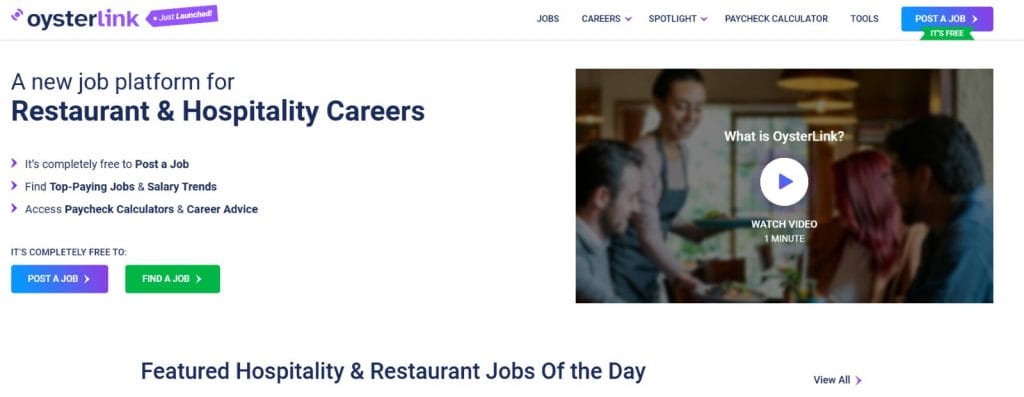
OysterLink is a premier platform designed exclusively for hospitality professionals, including Event Managers.
It connects qualified candidates with reputable employers in various industries, including hospitality, corporate event planning and nonprofit sectors.
Pros of using OysterLink:
- Tailored job listings specific to the event management and hospitality sectors
- Advanced search filters for location, experience level and salary preferences
- Access to exclusive resources like interview guides, salary benchmarks and career development tips
2. LinkedIn
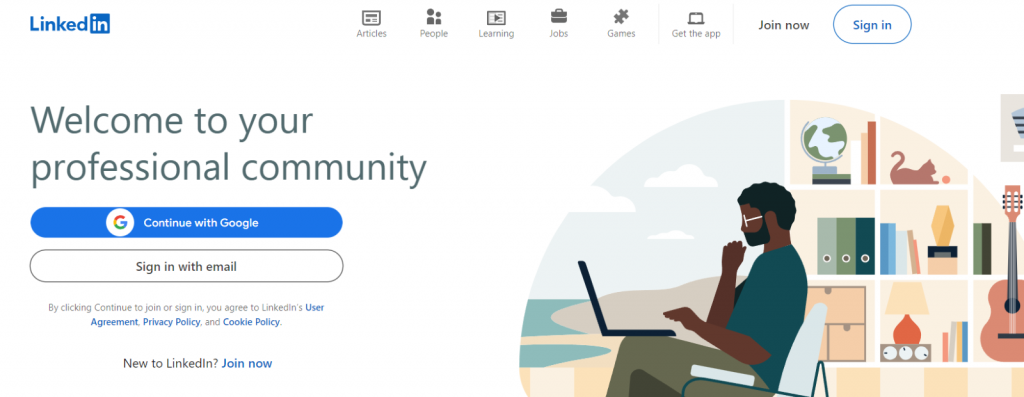
LinkedIn is a leading professional networking platform offering a wide range of job opportunities across industries, including event management.
Its vast network allows Event Managers to connect directly with hiring managers and showcase their expertise through a professional profile.
| Pros | Cons |
| Extensive job listings, including corporate and hybrid event roles | Requires consistent updates to profiles to maximize visibility |
| Networking opportunities to connect with industry professionals and potential employers | High competition for popular roles due to the platform’s wide reach |
| Insights into company culture through employee reviews and posts | Some features, like advanced job alerts, require a premium subscription. |
3. HCareers
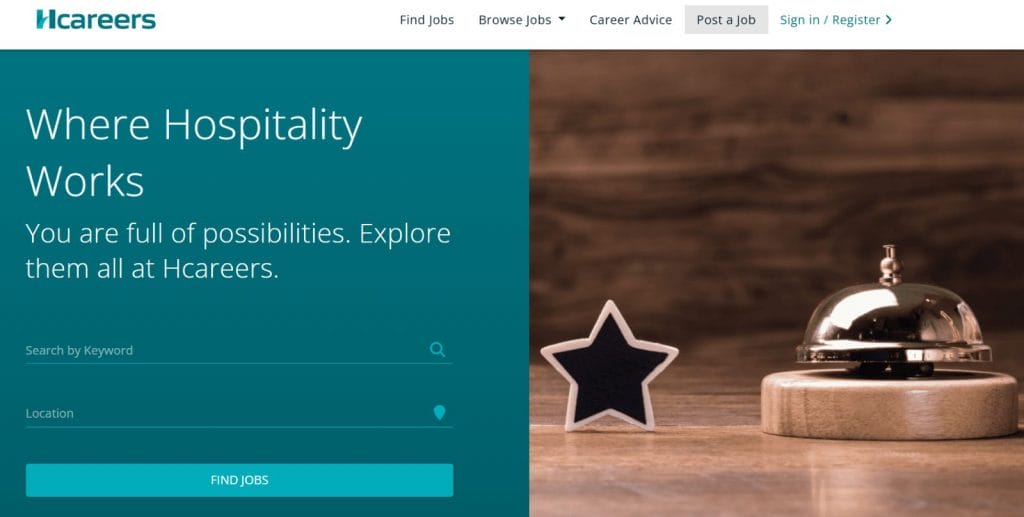
HCareers focuses on hospitality-related jobs, making it an excellent platform for Event Managers seeking roles in hotels, resorts and other hospitality venues.
It features an intuitive interface that simplifies job searching and applications.
| Pros | Cons |
| Specializes in hospitality roles, ensuring relevant job opportunities | Limited coverage of corporate event roles outside the hospitality sector |
| Career resources tailored to hospitality professionals, including resume tips and interview advice | Requires a premium membership to access some advanced features |
| Filters for location, role type and salary to refine search results | Fewer networking options compared to broader platforms like LinkedIn |
4. Glassdoor
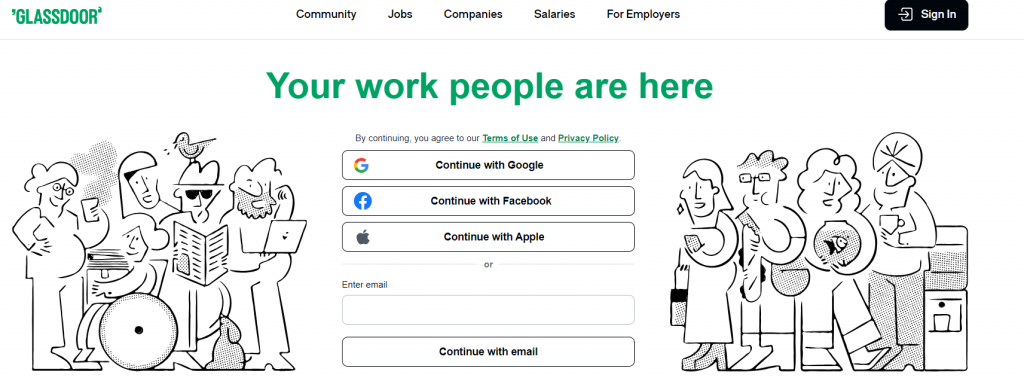
Glassdoor is known for its comprehensive job listings, company reviews and salary insights, making it a valuable resource for Event Managers.
It provides a transparent look into potential employers and their hiring practices.
| Pros | Cons |
| Detailed company reviews and ratings to assess work environments | Limited event-specific filters, requiring extra effort to refine searches |
| Has salary data and benefits comparisons for informed decision making | Some reviews may be outdated or less reliable. |
| Mobile-friendly interface for job searching on the go | Full access to all features requires account creation |
5. Poached Jobs
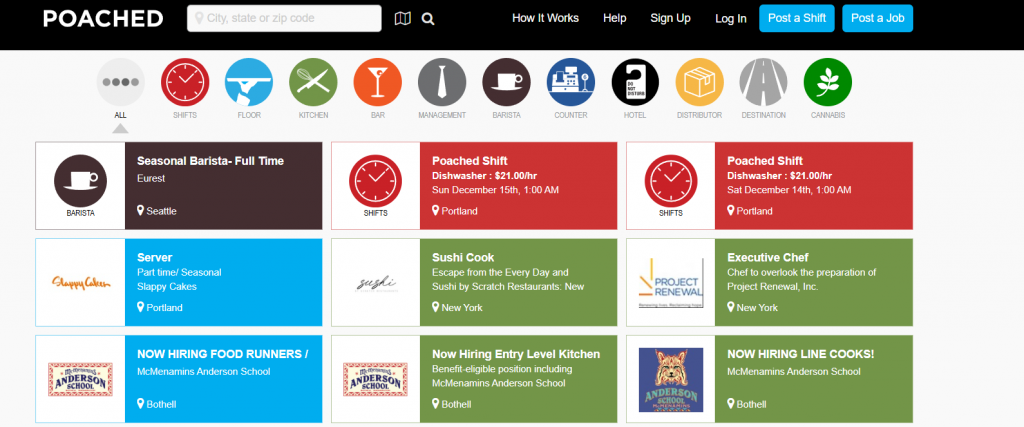
Poached Jobs caters specifically to the food service and hospitality industries, including event management roles.
Its straightforward interface and focus on connecting employers with talent make it ideal for candidates seeking event roles in restaurants, hotels, and catering.
| Pros | Cons |
| Industry-specific job postings, eliminating irrelevant listings | Primarily focused on hospitality, with limited corporate event roles |
| Simple and efficient application process | Less extensive coverage in smaller markets or rural areas |
| Strong reputation for connecting skilled talent with reputable employers | Advanced features often require a paid subscription. |
Find and Post Event Manager Jobs With OysterLink
OysterLink remains the top choice for Event Managers and employers in the event planning and hospitality industries.
With tailored resources, advanced job-matching algorithms and a focus on connecting qualified professionals with reputable organizations, it streamlines the hiring process making it easier for employers and applicants alike.
Take a confident next step on your hospitality journey and advance your career with OysterLink!

Written by Vukasin Petrovic
Vukasin is an experienced content creator with more than five years of writing and editing experience. With a background in English and an MFA in Creative Writing, he excels in digital marketing and copywriting, crafting narratives that engage the audience.

Reviewed by Marcy Miniano
Marcy is an editor and writer with a background in public relations and brand marketing. Throughout her nearly decade-long career, she has honed her skills in crafting content and helping build brands across various industries — including restaurant and hospitality, travel, tech, fashion and entertainment.




